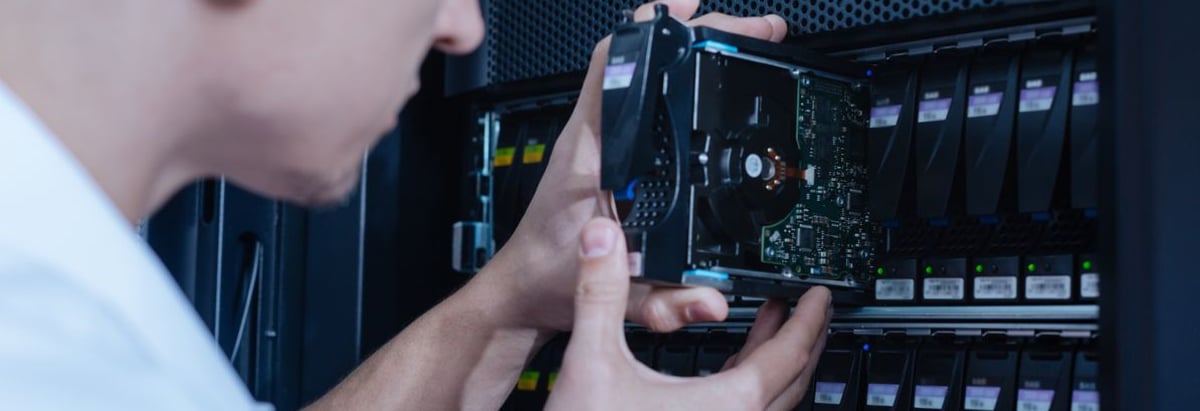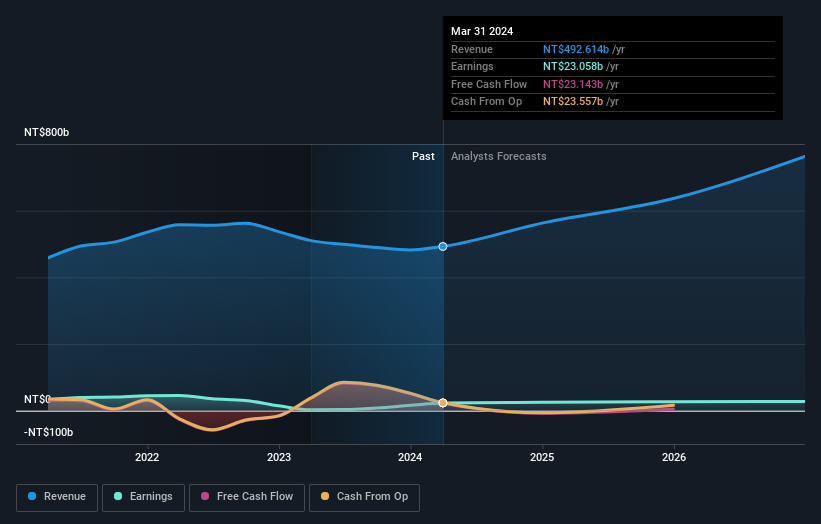- Taiwan
- /
- Tech Hardware
- /
- TWSE:2357
Institutions along with individual investors who hold considerable shares inASUSTeK Computer Inc. (TWSE:2357) come under pressure; lose 4.3% of holdings value

Key Insights
- ASUSTeK Computer's significant individual investors ownership suggests that the key decisions are influenced by shareholders from the larger public
- 35% of the business is held by the top 25 shareholders
- Institutional ownership in ASUSTeK Computer is 33%
A look at the shareholders of ASUSTeK Computer Inc. (TWSE:2357) can tell us which group is most powerful. And the group that holds the biggest piece of the pie are individual investors with 59% ownership. That is, the group stands to benefit the most if the stock rises (or lose the most if there is a downturn).
While the holdings of individual investors took a hit after last week’s 4.3% price drop, institutions with their 33% holdings also suffered.
In the chart below, we zoom in on the different ownership groups of ASUSTeK Computer.
Check out our latest analysis for ASUSTeK Computer

What Does The Institutional Ownership Tell Us About ASUSTeK Computer?
Institutions typically measure themselves against a benchmark when reporting to their own investors, so they often become more enthusiastic about a stock once it's included in a major index. We would expect most companies to have some institutions on the register, especially if they are growing.
As you can see, institutional investors have a fair amount of stake in ASUSTeK Computer. This suggests some credibility amongst professional investors. But we can't rely on that fact alone since institutions make bad investments sometimes, just like everyone does. When multiple institutions own a stock, there's always a risk that they are in a 'crowded trade'. When such a trade goes wrong, multiple parties may compete to sell stock fast. This risk is higher in a company without a history of growth. You can see ASUSTeK Computer's historic earnings and revenue below, but keep in mind there's always more to the story.

Hedge funds don't have many shares in ASUSTeK Computer. Looking at our data, we can see that the largest shareholder is Cathay Securities Investment Trust Co., LTD with 4.3% of shares outstanding. With 4.1% and 3.9% of the shares outstanding respectively, Jonney Shih and The Vanguard Group, Inc. are the second and third largest shareholders. Jonney Shih, who is the second-largest shareholder, also happens to hold the title of Top Key Executive.
Our studies suggest that the top 25 shareholders collectively control less than half of the company's shares, meaning that the company's shares are widely disseminated and there is no dominant shareholder.
Researching institutional ownership is a good way to gauge and filter a stock's expected performance. The same can be achieved by studying analyst sentiments. Quite a few analysts cover the stock, so you could look into forecast growth quite easily.
Insider Ownership Of ASUSTeK Computer
The definition of company insiders can be subjective and does vary between jurisdictions. Our data reflects individual insiders, capturing board members at the very least. Management ultimately answers to the board. However, it is not uncommon for managers to be executive board members, especially if they are a founder or the CEO.
Insider ownership is positive when it signals leadership are thinking like the true owners of the company. However, high insider ownership can also give immense power to a small group within the company. This can be negative in some circumstances.
We can report that insiders do own shares in ASUSTeK Computer Inc.. The insiders have a meaningful stake worth NT$21b. It is good to see this level of investment. You can check here to see if those insiders have been buying recently.
General Public Ownership
The general public -- including retail investors -- own 59% of ASUSTeK Computer. With this amount of ownership, retail investors can collectively play a role in decisions that affect shareholder returns, such as dividend policies and the appointment of directors. They can also exercise the power to vote on acquisitions or mergers that may not improve profitability.
Next Steps:
I find it very interesting to look at who exactly owns a company. But to truly gain insight, we need to consider other information, too. To that end, you should be aware of the 1 warning sign we've spotted with ASUSTeK Computer .
Ultimately the future is most important. You can access this free report on analyst forecasts for the company.
NB: Figures in this article are calculated using data from the last twelve months, which refer to the 12-month period ending on the last date of the month the financial statement is dated. This may not be consistent with full year annual report figures.
New: Manage All Your Stock Portfolios in One Place
We've created the ultimate portfolio companion for stock investors, and it's free.
• Connect an unlimited number of Portfolios and see your total in one currency
• Be alerted to new Warning Signs or Risks via email or mobile
• Track the Fair Value of your stocks
Have feedback on this article? Concerned about the content? Get in touch with us directly. Alternatively, email editorial-team (at) simplywallst.com.
This article by Simply Wall St is general in nature. We provide commentary based on historical data and analyst forecasts only using an unbiased methodology and our articles are not intended to be financial advice. It does not constitute a recommendation to buy or sell any stock, and does not take account of your objectives, or your financial situation. We aim to bring you long-term focused analysis driven by fundamental data. Note that our analysis may not factor in the latest price-sensitive company announcements or qualitative material. Simply Wall St has no position in any stocks mentioned.
About TWSE:2357
ASUSTeK Computer
Researches and develops, designs, manufactures, sells, and repairs computers, communications, and consumer electronic products in Taiwan, China, Singapore, Europe, the United States, and internationally.
Solid track record with excellent balance sheet.


